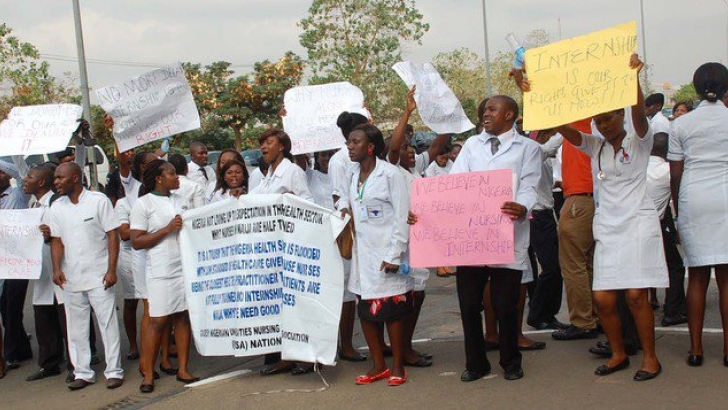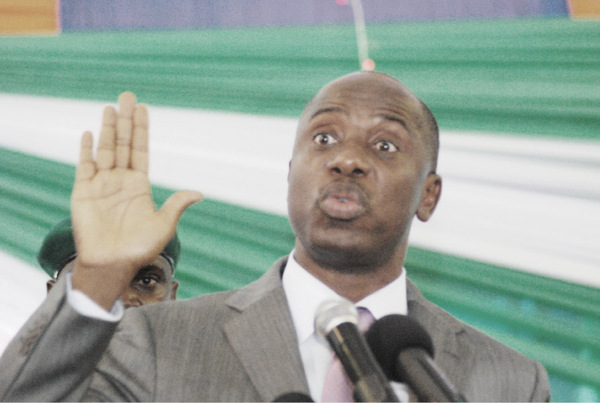BY LAZ UDE EZE
The 2015 general election was characterised by myriad of promises on every sector of our national life, including health. But many promises were also made in previous elections, you may say. Yes, but not many were measurable. The promise of “change”, as captured in the manifesto of the All Progressives Congress (APC), rekindled hope and also triggered scepticism among different sections of the Nigerian population. Beyond the campaign rhetoric and beautiful manifesto, would the Nigerian health sector experience change?
For more than 10 years, I have been following developments in the Nigerian health sector very closely. Within the past couple of years, I have been involved in health policy development at the national level and implementation of population-based health interventions at the state and community levels. I have also studied the health systems of some other countries, including but not limited to Sweden, Kenya, Cuba, China, Nicaragua, United States, Togo, India and the United Kingdom and drawn good lessons from their strengths and weaknesses. One of the lessons is that health is an expensive ‘business’ and does not have quick fixes but doing nothing in the face of crisis is abominable.
How about the health sector in Nigeria? I will liken it to a patient with chronic illness who was having gradual recovery but suddenly experienced relapse and is currently experiencing acute exacerbation. An acute on chronic health condition requires very urgent intervention as delay may be catastrophic. What do I mean? The return of democracy in 1999 led to gradual recovery of hitherto comatose health sector. There was improvement in remuneration of health workers while health financing (public and private) also improved. Many new health policies have been promulgated and task-shifting approach is being utilised to take health services to under-served communities. Life expectancy improved, Guinea Worm was eradicated, Ebola was contained and we are on the verge of eradicating polio. Unfortunately, poor management of the human resources for health has been causing an intractable crisis among healthcare professionals. This appears to have reached a crescendo in 2014 and remained on a plateau bed till now.
Perhaps I should remind us of some of the health-related “change” contract APC has with Nigerians. They include: to review occupational health laws and immediately commence enforcement of the provisions to reduce hazards in the work place; coordinate more effectively the work of the numerous federal healthcare agencies; ensure that no Nigerian will have a reason to go outside of the country for medical treatment; strengthen the workforce to 50 physicians per 1000 persons; and above all, increase life expectancy. The APC also wants to increase the quality of federal teaching hospitals to world-class standards. These are lofty plans but the stack negligence of the 11-week old administration on the crisis-laden health sector puts question mark on the will of the APC-led government to revamp the health sector and meet their targets.
Advertisement
Within the past two months, resident doctors in 30 tertiary hospitals across the country have gone on strike over dispute with the management of their hospitals. They include UCH Ibadan, UUTH Uyo, ABUTH Zaria, UCTH Calabar, AKTH Kano,Irrua Specialist Teaching Hospital (Edo State), FTH Iddo-Ekiti, JUTH Jos, LUTH Idi-Araba, NAUTH Nnewi, UNTH Enugu, NEC Kaduna, BSUTH Makurdi, KSSH Lokoja, FETHA Abakaliki, UATH Gwagwalada, Federal Neuropsychiatry Hospitals in Abeokuta, Kaduna, Yaba & Enugu, National Orthopaedics Hospitals in Enugu & Kano, as well as the Federal Medical Centres (FMC) in Owerri, Jalingo, Umuahia, Keffi, Asaba, Abeokuta, Birnin Kudu and Lokoja. UITH Ilorin and FMC Yenagoa reportedly gave ultimatum and may soon join the fray.
As I write, most (if not all) of the above-listed hospitals are still on strike. It may be recalled that all public hospitals in the country were shut for five months (July, August, November, December 2014 and January 2015) due to strike by health workers. With years of little or no improvement of healthcare services at primary health centres and general hospitals, teaching hospitals meet the clinical health needs of many Nigerians especially those who can’t afford private hospitals. As the strikes continue, thousands of people who voted for change die from preventable and curable health conditions; health commodities like drugs and reagents are getting expired, while the remaining little confidence in our health sector continues getting eroded.
Permit me to ask some questions, please. Are senior government officials and APC leaders unaware of the continuation of the health sector conflict they inherited? Should the chief medical directors be allowed to continue to defy federal government circulars and allow the dispute to linger? Are Nigerian people waiting for a high-profile individual to fall victim of the imbroglio before speaking out?Does President Buhari want a total collapse of the health sector before the implementation of his ‘change’agenda? Would anyone be held accountable for the untold hardship and irreparable losses the strike is causing? When would the recommendations of the uncountable committees set up in the past to resolve inter-professional dispute in the health sector be implemented? Will President Buhari appoint a seasoned health professional with extensive clinical and public health background and admirable managerial skills as the next minister of health? Will the present administration break the cycle of much talk and little action in health-related matters? Are the Nigerian people likely to change from reactionary to proactive attitude towards health?
Advertisement
Lest I forget, the former minister of health, Professor Onyebuchi Chukwu was reported to have said that 2,701 Nigerian doctors left the country between 2008 and 2012. He also stated (reportedly) that Nigeria posts an abysmally poor doctor-patient ratio of 1:3,500 against the World Health Organization (WHO) standard of 1:600. Would it be necessary to compare these stats with APC’s promise of 50 physicians per 1000 clients? Considering the continuing inability of government to ensure proper management of hospitals, growing discontent among the citizenry and our I-don’t-care body language towards proactive advocacy for better health; what’s your prognosis for the health sector in Nigeria in this era of Change? Any hope?? Before I go, thanks to buharimeter.ng and ngmanifesto.org for documenting the promises. I will be back….
Laz Ude Eze, a public health physician, health policy advocate and development consultant, is a co-founder of the African Youth Initiative on Population, Health & Development (AfrYPoD)
Advertisement
Views expressed by contributors are strictly personal and not of TheCable.
Add a comment


